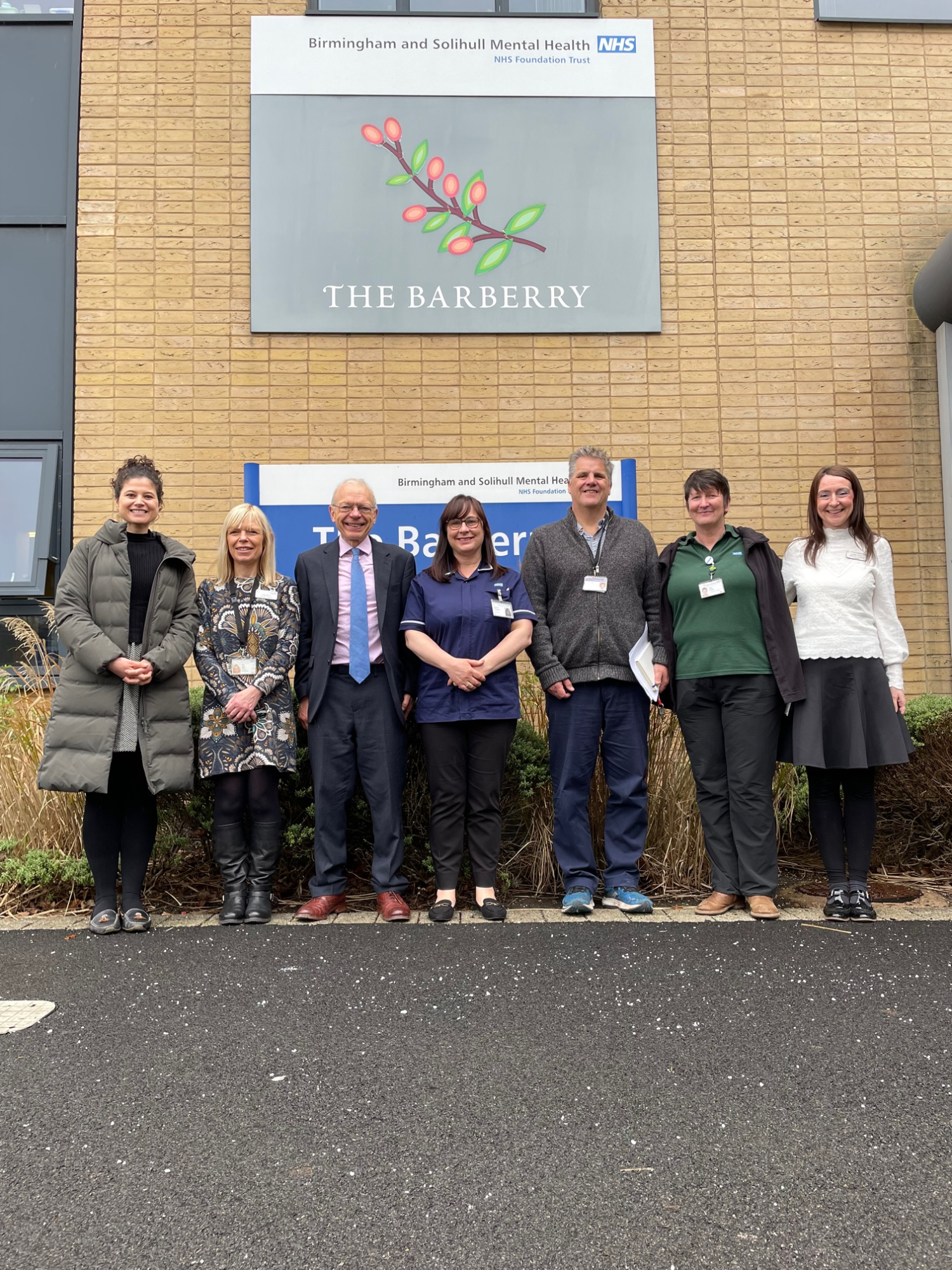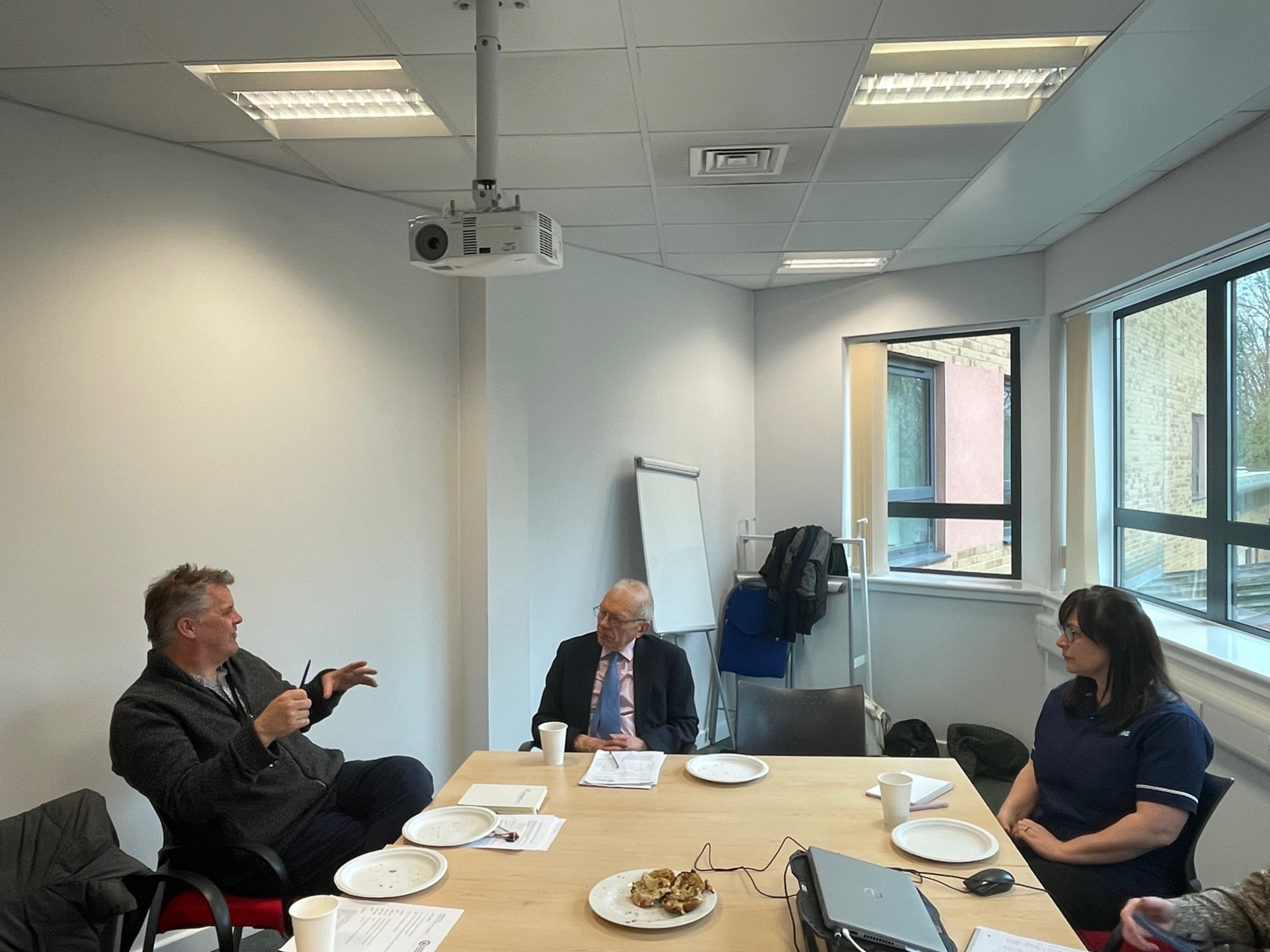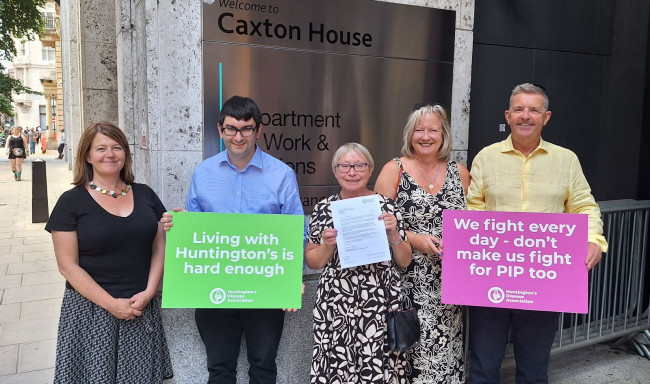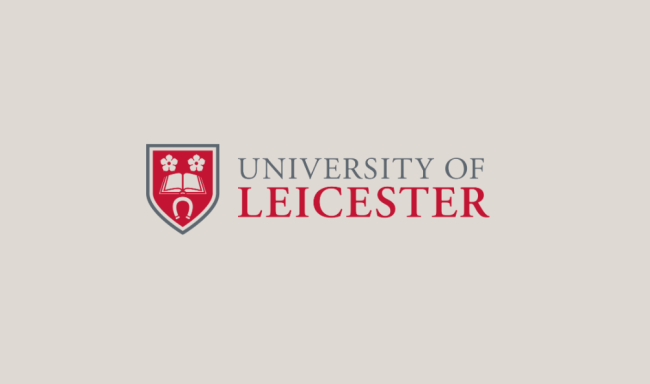Lord Hunt has visited Birmingham and Solihull Mental Health Foundation NHS Trust (BSMHFT) on Wednesday 5 April, to understand more about Huntington’s disease.
Around 8,000 people throughout the UK have Huntington’s disease, with an estimated 32,000 at risk of inheriting it. Invited by the Huntington’s Disease Association, Lord Hunt will visit Professor Hugh Rickards and the team at BSMHFT to understand more about treatment for Huntington's disease and how the clinic is a Centre of Excellence.
Huntington’s disease is an inherited condition. People with the disease usually start showing symptoms between the ages of 30 to 50, as the disease progresses the damage to the brain gets worse. It can affect movement, cognition (perception, awareness, thinking, judgement) and mental health. Because of the early age at which people can be affected, it is vital to get the right treatment in place at the right time.
BSHMFT is a clinic of excellence for the treatment of Huntington’s disease. The centre cares for 400 patients currently, with around 170/180 patients who are taking part in research studies The clinic offers holistic care treatment, working closely in partnership with the medical professionals needed to treat Huntington’s.
Invited by the Huntington’s Disease Association, Lord Hunt has visited Professor Hugh Rickards and the team at BSMHFT to understand more about treatment for Huntington's disease and how the clinic is a Centre of Excellence.
The visit was at the request of Lord Hunt so he could understand more about Huntington's disease BSHMFT is a clinic of excellence for the treatment of Huntington’s disease. The centre cares for 400 patients currently, with around 170/180 patients who are taking part in research studies The clinic offers holistic care treatment, working closely in partnership with the medical professionals needed to treat Huntington’s.
Lord Hunt said,
Thank you to the Huntington’s Disease Association and everyone at The Barberry Centre for showing me around the centre last week. It was interesting to see the wonderful work they do and listen to the unique challenges people with Huntington’s disease face. I will be working with the Huntington Disease Association in the future to see what difference I can make to improve people's lives who are affected by this disease.
This includes nurses, dietetics to help with nutrition and food, occupational therapy to help make everyday tasks easier, speech and language therapy for feeding and communication problems, physiotherapy to help with movement and balance, and access to mental health services - all overseen by Prof Hugh Rickards, a Consultant in Neuropsychiatry.
Professor Hugh Rickards from Birmingham and Solihull Mental Health NHS Foundation Trust and Chair of the Huntington's Disease Association, said:
“I am delighted to welcome Lord Hunt to our clinic so he can learn more about the work we do. As well as a Consultant of Neuropsychiatry at a Centre of Excellence for Huntington’s disease I am Chair of the Huntington’s Disease Association and a keen advocate for patients' access to the right treatment. I have seen the difference early intervention can make to someone with Huntington’s disease.”
The team at the Trust are world-renowned for their expertise. They have written international guidelines for the treatment of Huntington’s, are part of international research projects and were one of just nine sites worldwide to trial human gene modifying research. Known as a prominent research centre worldwide, the team covers the West Midlands area, sees 400 people with Huntington's disease and takes weekly referrals.
Although the majority of patients are from the West Midlands the centre is visited by people from other parts of the UK.
Lord Hunt has become an advocate for people with Huntington’s disease and has started taking an active interest since meeting with the Huntington’s Disease Association. He is keen to learn more about the condition and how access to mental health services is so important.






